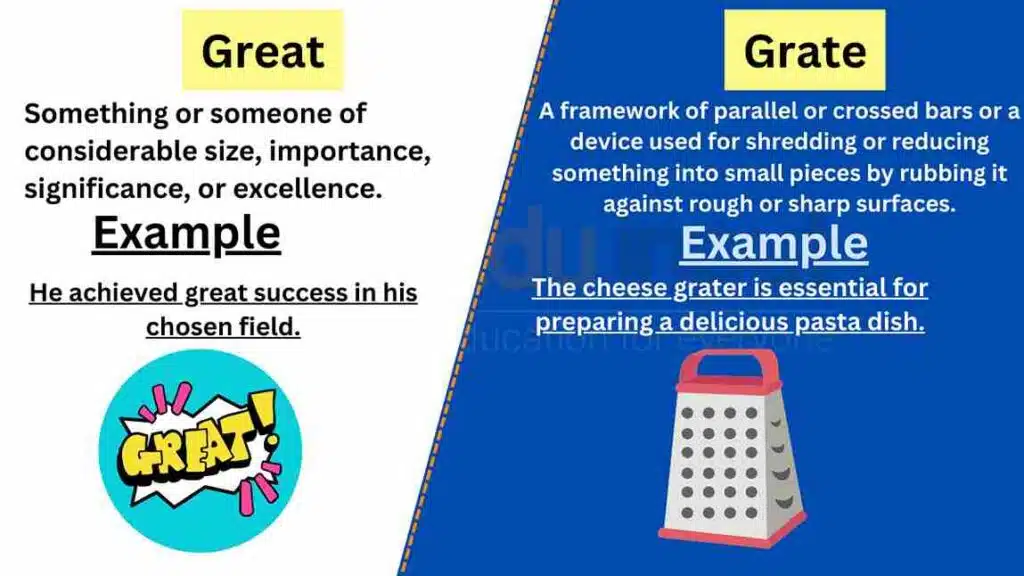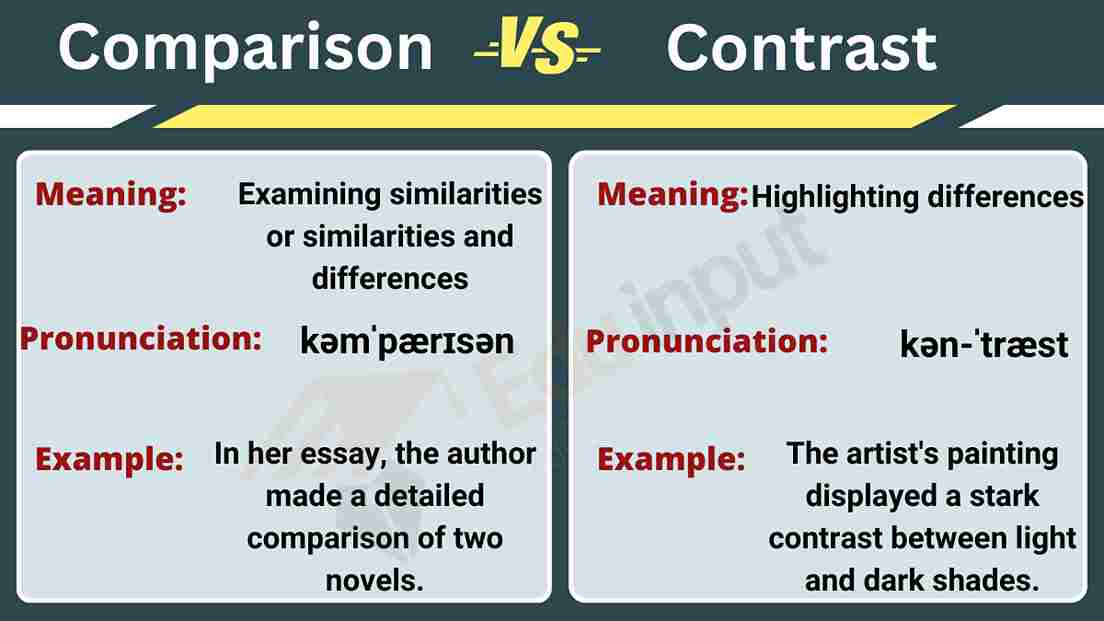Great vs Grate-Difference Between And Examples
In the English language, the words “great” and “grate” may sound similar but have distinct meanings and usage. In this article, we will explore the differences between “great” and “grate” to clarify their definitions and provide examples of their usage. By understanding these terms, we can communicate more accurately and avoid confusion. Let’s delve into the meanings of “great” and “grate” to enhance our language skills.

Meanings and Examples
Great Meaning
The meaning of “Great” denotes something or someone of considerable size, importance, significance, or excellence. It can also refer to a strong emotional intensity or a high degree of skill.
Great Examples
- “She is a great leader, inspiring others with her vision.”
- “The concert was a great success, with a crowd of enthusiastic fans.”
- “He achieved great success in his chosen field.”
Grate Meaning
The meaning of “Grate” refers to a framework of parallel or crossed bars or a device used for shredding or reducing something into small pieces by rubbing it against rough or sharp surfaces.
Grate Examples
- “The cheese grater is essential for preparing a delicious pasta dish.”
- “The fireplace had a metal grate to support the burning logs.”
- “The chef used a lemon zest grater to add flavor to the dessert.”
Difference Between Great and Grate
| Great | Grate | |
| Meaning | Denoting something of considerable size, importance, or excellence | Referring to a framework of bars or a device used for shredding or reducing |
| Example | “She is a great leader, inspiring others with her vision.” | “The cheese grater is essential for preparing a delicious pasta dish.” |
| Usage | Describing size, importance, skill, or intensity | Referring to a framework or a device for shredding |
| Context | General discussions, achievements, qualities | Culinary, cooking, heating, or industrial purposes |
Usage in a Paragraph
The word “great” holds immense significance in various contexts. When describing people, it emphasizes their exceptional qualities, achievements, or leadership skills. A great leader inspires and motivates others, leaving a lasting impact on their followers. Similarly, great success signifies remarkable accomplishments or extraordinary achievements in various fields, such as business, sports, or the arts. It also expresses intense emotions, like great joy, great sorrow, or great relief, indicating a high degree of emotional intensity.
On the other hand, “grate” refers to a specific object or device. In the culinary realm, a cheese grater plays a vital role in preparing dishes by shredding cheese into fine pieces. In a fireplace, a metal grate supports the burning logs and ensures proper airflow for an efficient and safe fire. In various industries, grates are utilized for different purposes, such as sieving or filtering materials, providing structural support, or facilitating heat transfer.
Understanding the distinction between “great” and “grate” allows us to use these words accurately and effectively in our communication. “Great” signifies size, importance, significance, excellence, or emotional intensity in a broad range of contexts. On the other hand, “grate” refers to a specific object or device, typically used for shredding or reducing something into smaller pieces. By recognizing and applying these meanings correctly, we can avoid confusion and convey our thoughts with clarity. So, whether we are describing great achievements or using a cheese grater in the kitchen, embracing the difference between “great” and “grate” enhances our language skills and facilitates effective communication.







Leave a Reply